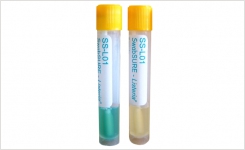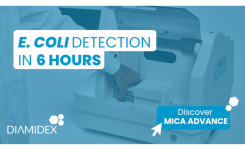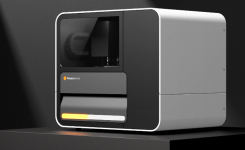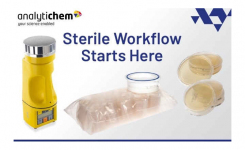Collaboration Pact for Bioweapons Detection and Medical Diagnostics
go back to news archivesPria Diagnostics and Vanderbilt University have announced a collaboration to combine Pria's miniaturized fluorescence reader with Vanderbilt's lab-on-chip diagnostic assays. The collaboration is focused on developing products that rapidly detect immunofluorescent antigens in a handheld package. Pria and Vanderbilt intend to use the combined technologies to achieve laboratory quality infectious disease testing, initially for specific applications in mobile bioweapons and emerging disease detection.
“Vanderbilt has clearly differentiated itself as a world class research facility in the area of biological MEMS (microelectromechanical systems). Their extensive experience in using microfluidics to separate and label samples on a single assay fits ideally with our microfluorimeter,” said Jason Pyle, Ph.D., Chief Scientific Officer for Pria. “The integration of their technology with our platform shows how fluorescence testing achieves diagnostic capabilities previously only available through a laboratory.”
Pria's microfluorimeter combines solid-state components, polymer optics and an integrated digital control system to replace the complex machinery used in current fluorescent detectors. As a result, the platform is portable, lightweight and mechanically robust in a device that can be manufactured at low cost in high volume. The microfluorimeter possesses the sensitivity and fidelity required in a wide range of fluorescent assays, including screening for chemical and biological weapons (CBW), chronic and infectious diseases and hazardous environmental conditions.
John P. Wikswo, Ph.D., Professor of Biomedical Engineering, Physiology, and Physics at Vanderbilt, will head the University's efforts through the Vanderbilt Institute for Integrative Biosystems Research and Education (VIIBRE). VIIBRE is supported by DARPA, NIH, and the Whitaker Foundation. “I am amazed at how well the Pria and VIIBRE technologies a re meshing, and our rapid progress on prototype portable instruments for clinical diagnosis, biodefense, and toxin exposure,” said Dr. Wikswo.
Mobile microdiagnostic tests could quickly and efficiently provide critical information in a wide variety of military and medical environments. Pria's platform is small enough to be carried in the pocket or pack of soldiers in the field for real-time CBW screening of anthrax, cholera or smallpox . Similarly, physicians could rapidly identify and diagnose emerging diseases, such as SARS, Ebola or West Nile virus, before outbreaks occur.
Source : Pria Diagnostics View archived contact details
Posted on November 19, 2004

















